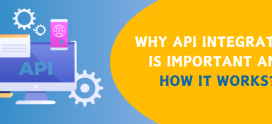
The Evolution of Artificial Intelligence
Artificial Intelligence (AI) is transforming our world in ways we never imagined. From the way we work to how we interact with technology daily, AI is making things smarter, faster, and easier. The concept of AI might sound like something out of a science fiction movie, but it is very much a part of our reality. In this blog, we will delve into “The Evolution of Artificial Intelligence,” exploring its origins, growth, and future. We’ll also hear from experts about their thoughts on AI and discuss where this fascinating technology is headed in the next five years.
Imagine a world where your car drives itself, your phone understands your needs before you even express them, and your doctor can predict health issues before they become serious. This is not the distant future but an emerging reality thanks to AI. Let’s take a journey through the history of AI, understand the evolution of artificial intelligence, and see what the future holds for this groundbreaking technology.
The Beginning of Artificial Intelligence
AI started as an idea in the minds of scientists and researchers. In the 1950s, the first concepts of AI were introduced. Scientists wanted to create machines that could think and learn like humans. The early computers were very basic and could only perform simple tasks. These machines could not learn from their experiences and needed to be programmed for every task.
The Growth of AI
Over the years, AI has grown a lot. In the 1980s, we saw the rise of expert systems. These systems could make decisions based on a set of rules. For example, an expert system could help doctors diagnose diseases by following a set of medical rules.
The real change came in the 2000s with the rise of machine learning. Machine learning allows computers to learn from data. This means that instead of being programmed for every task, computers can learn how to perform tasks by looking at examples. For instance, a machine learning system can learn to recognize faces by looking at thousands of pictures of faces.
AI Today
Today, AI is everywhere. We use AI when we search the internet, when we use our smartphones, and even when we drive our cars. AI powers voice assistants like Siri and Alexa. These assistants can understand our speech and respond to our questions. AI also helps doctors diagnose diseases in healthcare and detect fraudulent transactions in finance.
What Experts Are Saying About Artificial Intelligence
Experts are very excited about the future of AI. They believe that AI will continue to grow and become even more important in our lives. Here are some insights from leading experts in the field:
- Dr. Andrew Ng, co-founder of Google Brain and Coursera, believes that AI is the new electricity. He says, “Just as electricity transformed almost everything 100 years ago, today I have a hard time thinking of an industry that I don’t think AI will transform in the next several years.”
- Elon Musk, CEO of Tesla and SpaceX, has a more cautious view. He warns about the potential dangers of AI, stating, “AI is a fundamental risk to the existence of human civilization.” Despite his warnings, Musk is investing heavily in AI through companies like OpenAI.
- Fei-Fei Li, a professor at Stanford University, focuses on the ethical aspects of AI. She emphasizes the importance of developing AI responsibly, saying, “It’s not just about making AI more powerful, but also about making it more human-centered and fair.”
Experts across the board agree that AI has immense potential to benefit society. They believe it can revolutionize industries, create new jobs, and solve complex problems. However, they also stress the need for responsible development and ethical considerations to ensure AI is used for the greater good.
Where AI is Headed in the Next Five Years
In the next five years, we can expect AI to become even more advanced. One area where we will see a lot of growth is in AI-powered automation. This means that more and more tasks that are currently done by humans will be done by machines. For example, self-driving cars are expected to become more common, and we might see more robots in factories and warehouses.
Another area of growth is personalized AI. This means that AI systems will become better at understanding and predicting our needs. For example, our smartphones might become better at suggesting apps and services that we like, and our healthcare systems might become better at predicting and preventing diseases.
AI at Skyview Smart Solutions
At Skyview Smart Solutions, we are excited about the future of AI. We are committed to using AI to create smart solutions that make life easier and better. Our team is working on innovative AI projects that can help businesses grow and succeed. We believe that AI can transform industries and improve lives, and we dedicate ourselves to leading in this exciting technology.
The Future of AI
The future of AI is very bright. With the advancements in machine learning and automation, we are just beginning to see what AI can do. In the next decade, we will see AI systems that are more intelligent, more capable, and more integrated into our daily lives.
Imagine a world where AI can help us with almost every aspect of our lives. From personalized healthcare to smarter cities, AI will be a key driver of innovation and progress. The possibilities are endless, and the future is full of potential.
Conclusion
“The Evolution of Artificial Intelligence” shows us how far we have come and how much more we have to look forward to. AI started as a simple idea and has grown into a powerful tool that is changing the world. Experts believe that AI will continue to grow and become even more important in our lives. In the next five years, we can expect AI to become more advanced and more integrated into our daily lives.
At Skyview Smart Solutions, we are excited to be a part of this journey and to use AI to create smart solutions for a better future.
Thank you for reading our blog on the evolution of AI. We hope you found it informative and engaging. If you have any questions or would like to learn more about our AI projects, please feel free to reach out to us. We look forward to hearing from you!



